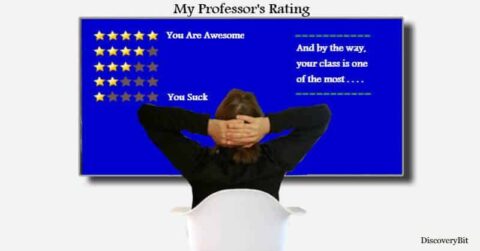With the rising number of students, with varied academic skills, enrolling in tertiary-level education, there is a need to ensure the effective teaching of college students by college professors.
College professors are among the key participants in ensuring that effective teaching takes place in institutions of higher learning. However, the skills most needed for effective teaching by professors involve more than just an instructor’s expertise in a field of study or specialty. Professors need to possess positive qualities that can enhance their interactions with the students, thereby ensuring more impactful learning.
Who are the contributors to this post?
| Answer |
Professors should be able to adjust their teaching strategies to fit both students and the teaching material, bearing in mind that, as previously stated, students have different learning paces.
College professors are also role models to the students they teach; hence, they have to set the proper standards and commitment for students to reciprocate. Additionally, given that most students usually have higher expectations of their professors, especially from those with great ratings on the Rate My Professor platform; hence, professors need to portray the best qualities possible that can positively impact the learning process of their students.
In addition to the above-mentioned effective teaching requirements, many teaching strategies have been developed over the years, some of which have proven successful and others not so much. Effective teaching and learning require the implementation of many innovative and creative teaching strategies to meet students’ needs.
This post will discuss some of the best methods that professors can implement to make their teaching more effective.
A) Use of technology
The advances in information technology over the years have revolutionized learning in all aspects of life.
Thomas Edison once said, ‘Books will soon be obsolete in the public schools…our school system will be completely changed within ten years.’
Technology is a great way for professors can keep their lessons more interesting. For instance, instead of giving lectures all the time, they can opt for smartboard interactive displays or even mobile devices to show learning videos and images. This will aid students in visualizing new academic concepts.
Learning should also be made more interactive using technology, as students can physically engage themselves during lessons, giving their ideas almost instantly.
B) College instructors should use inquiry-based instruction
Teaching in colleges need not be an entirely instructor-based process. Professors should pose thought-provoking questions randomly to inspire students to think for themselves, and hence encourage independence among the students.
An instructor also needs to encourage students to ask questions and do more research on their ideas, which can be objective or subjective, to enable students to express their unique views. This will teach the students problem-solving skills and also help them to comprehend academic concepts better.
C) Should plan for instructional management
Students should always be updated on what to expect in a course.
Students need a visual outline posted on what to expect from the professor during the class, as this will help them plan and follow the lesson more effectively.
The professor also needs to plan for other aspects of the course, such as taking attendance, distributing of papers, and creating time for students to ask questions on the coursework. Also, professors need to include the necessary policies in the syllabus, for example, regarding the use of cell phones, examinations, attendance, and disturbances, in addition to reviewing them with the students.
D) Advocate for cooperative learning
A classroom usually consists of students from different backgrounds with mixed abilities and personalities. College professors, therefore, need to encourage all students to work together by promoting small cohesive groups or whole-class activities such as discussion forums, conducting scientific experiments, acting out short drama sketches, or even solving mathematical puzzles.
Professors need to create proper learning tasks that are appropriate for students’ different levels of understanding. Encouraging verbal expression of one’s ideas and being able to respond to others will enable students to develop their self-confidence, and enhance their communication and critical thinking skills. They will also learn to appreciate each other despite their varied abilities.
Professors also need to recognize the uniqueness of individual students to avoid the imposition of the same standards that often view all students within the same learning caliber.
E) Seek professional development
Regular engagement, as an instructor, in professional development programs is a core tool in effective teaching and learning processes in colleges. Such sessions may include learning about various aspects of education such as online safety training and new educational technologies.
With the ever-changing education policies, there is a need to attend events where one can grow professionally and gain inspiration from other instructors.
F) Teach with different strategies
The instructor, given that every student is unique in his or her way, needs to use a combination of effective teaching strategies to address students’ varying learning styles and capabilities.
Professors need to have an understanding of various teaching approaches like guided inquiry, group work, online discussions, active learning activities, lectures, and learner-centered teaching.
A professor also needs to know that every student has an approach that works best for him or her. As such, an instructor should endeavor to factor in what works best for students in the course content delivery to ensure that the learning needs of students are met.
This will go a long way in helping students learn better as they are given the rationale behind what they study and why a professor is using a given instructional method(s) and learning activities.
G) Make the lessons interactive
An interactive class, as previously stated, is an interesting class. Gone are the days when college professors would dominate the entire lecture without students’ participation, where the instructor would stand before the class and lecture students as the students only listened and took notes.
With that old style of teaching, students are more likely to quickly lose interest, which hinders effective teaching. However, a more interactive and cooperative strategy will make the sessions more interesting for the students. For instance, try activities where each student is responsible for his or her part of a group activity.
H) Use assessment to inform students of their achievement
Assessment can be used to improve teaching and learning and to an extent used to communicate the efforts made during the learning process. It creates feedback that can be used to improve students’ performance.
College professors should use a variety of assessment techniques that can allow students to demonstrate their mastery of the material in different formats. These testing methods might include random assessment tests, random questions in class, and student evaluation forms. This can be done at scheduled times, for instance, every semester or even twice in a semester.
The assessments might point out areas that need improvement in the teaching process. However, the professors should avoid assessment techniques that encourage students to regurgitate and memorize.
And by the way, professors should make clear the grading policies and grading scales used. The instructor needs to share the grading policy in the course syllabus. The professor should also endeavor to upload the grades online for easy access to students when they need them.
I) College professors have to be fair
Professors, in any setting, need to be extremely fair to all their students. Students want an instructor who has set clear expectations, applied them consistently, and can admit when they are wrong, be it in the grading of exams and assigning of grades.
This also applies when a professor makes a mistake or does not know the answer to a given question—-it is always fair to acknowledge that rather than ignore it.
A professor, in cases where a course or classroom policies are clear enough and standards are set, has to keep the tone and apply the policies equally and consistently. Otherwise, one’s credibility, which should be maintained at all times as a college professor, will be questioned.
J) Avoid the repetition of lecture material
College students will often get bored when their professor uses the same teaching material over and over again. The professor, for effective teaching and learning, needs to always review the classroom materials and try not to repeat them verbatim because it can make his or her students less interested in the learning process. Consider using a different approach from the first time you teach the students to when reviewing the study material.
K) Be accepting of all students in the classroom
College professors need to be accepting of their students to help them develop intellectually and otherwise. After all, this is one of the major reasons why they are in college.
Professors need to understand that some students come to college unprepared, and therefore, college professors must make the effort to effectively teach their students so that they can meet their various educational needs.
Giving ungraded pre-tests, for example, can help the professor assess what the students already know about the topic he or she will be teaching. Besides, students should not be criticized in the circumstance that they do not know or understand what is being taught in the class.
L) Learn to keep up teaching passion:
Effective teaching and learning in colleges are greatly impacted by how much the college professors and students are motivated and their passion.
As a professor, it is easy to become disheartened by many factors such as lack of proper administrative support, student complaints, job insecurity, and even budget cuts. However, you should always keep in mind the true passion that drew you into the teaching discipline.
True passion for a subject encompasses the great desire to learn and share knowledge with one’s students. Taking advantage of the opportunities available in the college to learn, teach, research, and shape the world through your area of expertise is also key to effective teaching and learning. It also involves professors recognizing many of the students’ needs and taking action to help them meet the challenges successfully.
M) Organize conferences and workshops for students
College students, for effective teaching and learning to take place, need to be exposed to the outside world. Let them engage in various real-world research topics, and extracurricular activities, and attend study workshops to learn more from other students.
The professor can also organize symposiums for the students to debate on the various topics that may be assigned. The discussions can be among the students themselves or competitions with other colleges as arranged by the professor. This will effectively shape the student’s learning skills in various disciplines.
N) Effective behavior management
College professors need to implement an effective behavior management strategy to gain students’ respect and ensure that students have equal opportunities to achieve their full potential.
For more effective teaching, the professor has to develop policies to guide how students should conduct themselves in the classroom environment. Often, disruptive and noisy classrooms deter an effective and productive learning process. Therefore, this calls for the need to develop a conducive atmosphere characterized by mutual respect through a combination of both reward and discipline for both the students and the professors.
O) Relate study material to students’ lives
Effective learning in colleges involves giving students a better understanding of why they ought to study whatever is being taught to them. College professors should try to create a real-world connection to the students’ learning.
This can be achieved by giving the students real-world and straightforward answers when such questions come up. By doing that, a professor is helping the students make a connection between what they learn in the classroom and how they will utilize the information in the real world. This will make them more enthusiastic about learning, making the teaching and learning process more effective.
P) Project-Based Learning (PBL)
Engage students in authentic, real-world projects that require critical thinking, problem-solving, collaboration, and creativity to deepen their understanding of the course material.
Q) Flipped Classroom
Inverting traditional teaching methods by delivering instructional content outside of class (e.g., through videos or readings) and using class time for interactive, application-based activities and discussions.
R) Peer Instruction
Incorporate structured peer-to-peer interactions, such as peer teaching, peer feedback, or peer collaboration, as this will enhance learning outcomes and promote deeper understanding.
S) Service-Learning
Integrate community service projects into the curriculum to provide students with hands-on learning experiences while addressing community needs and fostering civic engagement.
Conclusion
Teaching and learning in colleges can be made more effective by using any one or a combination of the above strategies. However, instructors should understand that every college student is unique, which can pose a challenge to effective teaching.
Therefore, effective teaching, while very much achievable, would require the use of a combination of teaching strategies to address the students’ varied academic capabilities and learning styles.
Well, these are just my opinions. Now, let’s see what these four professional educators have to say on the topic. Pay more attention to their similar recommendations as this could highlight what must be done to encourage effective teaching.
| Dr. Steve Sultanoff | Dr. Allison Buskirk-Cohen | David S. Wills | Melissa Morris |
1) Dr. Steve Sultanoff
 Here are some thoughts about teaching more effectively.
Here are some thoughts about teaching more effectively.
A) Create a learning need for the students.
For example, give some sort of test the first week demonstrating how little they know about the subject. It can include some playful questions as well such as define the universe…give 3 examples, solve PI, translate into Klingon, Elvish, etc.
B) Demonstrate how students (people) learn.
For example, for performance-based learning such as music, art, athletics, therapy, etc. I ask for a volunteer. That volunteer is given 3 balls and asked to juggle. When he/she cannot, I solicit from the class what is needed to teach juggling. I am eliciting the three fundamentals of performance-based learning…Teach the “technology” (tell/lecture/didactic process); Model the “technology” (show/demonstrate), and Experience/practice the technology. Have students “do” the “technology” (practice/receive feedback, experiential). By technology here I mean the substance of the learning. The “technology of “English” for example, includes types of words, sentence structure, etc.
C) Present examples relevant to the student. Use examples that fit the age group of the class. Incorporate social media, social culture, etc.
D) Make learning fun.
I am sure you have heard that before :). To teach deductive reasoning I once used what are called minute mysteries (20 questions) to teach the class how to formulate questions in a way to solve the “mystery.” Videos from social media can illustrate learning points. I often use videos from Big Bang Theory, Star Trek, and other current TV shows and movies to illustrate learning points.
E) Use humor
I like to exaggerate with my class. For example, I might say, “I have a lot to cover on this material so go take a bathroom break as we may be here for the rest of the day.” (When the class is only a couple of hours). Or “Your final exam is not that hard. I took it and only missed a few questions.” I also print my exams and the cover page is a cartoon that illustrates the subject matter.” For example. My psychology final has a cover page that has a woman at her door saying goodbye to a date. She states, “I’ll never forget you, Steve! At least not without a lot of therapy.” Since my name is Steve it makes it all the more humorous.
2) Dr. Allison Buskirk-Cohen
 Most college students are in the developmental phase of emerging adulthood. This stage, originally coined by Dr. Jeffrey Jensen Arnett, includes individuals ages 18- 25, approximately. It’s marked by feelings between adolescence & adulthood, identity explorations, instability, self-focus, and a sense of future possibilities.
Most college students are in the developmental phase of emerging adulthood. This stage, originally coined by Dr. Jeffrey Jensen Arnett, includes individuals ages 18- 25, approximately. It’s marked by feelings between adolescence & adulthood, identity explorations, instability, self-focus, and a sense of future possibilities.
Studies have shown major changes take place in the basic thinking structures of the brain. There are also changes in social-emotional processing that impact how individuals process information by themselves versus when they’re with peers. Effective college professors can translate this work into the classroom setting. For example, I’m very intentional about when and how I structure group work to make sure my activities are developmentally appropriate.
Another thing college professors can do to make their teaching more effective is to devote time to teaching students how to study and learn. It seems straightforward, but many students don’t understand how to make the transition from high school to the college classroom. They know that expectations have changed and are responsible for taking more responsibility in the learning… but in terms of what that means in the day-to-day environment, many remain uncertain.
In this post on Psychology Today’s website, I provide five steps students can take to become active learners. Regardless of the course, I’m teaching, I always devote time to explaining how students can engage with the material. Then, as we focus on the course content, students are more engaged, enjoy learning, and demonstrate a deeper understanding of the material.
Finally, an important aspect of effective teaching is establishing connections with students. Students who feel a sense of belonging at their institution are more likely to succeed. One type of belonging is a sense of feeling valued by professors.
My research has shown that when considering academic performance and commitment, feeling valued by professors is more important than being accepted by peers or a sense of institutional belonging. Other studies also have demonstrated the significance of interpersonal relationships.
One way I show my students that I value them is by starting each semester by asking students to complete a brief paper telling me about themselves. I ask them what name they wish to be called, their strengths as learners, what they’re looking forward to in the coming semester, and any areas of concern they have. It’s a great way to get to know, on a deeper level, who’s in my class and what they bring to it.
3) David S. Wills
 First of all, you have to know your students and their expectations. It sounds obvious, but so many professors/lecturers go into the new semester with preconceived notions. At the end of the day, your job is to facilitate learning – i.e., you should guide and prod them in the right direction. To do that, you need to know where they want to go.
First of all, you have to know your students and their expectations. It sounds obvious, but so many professors/lecturers go into the new semester with preconceived notions. At the end of the day, your job is to facilitate learning – i.e., you should guide and prod them in the right direction. To do that, you need to know where they want to go.
This is a fundamentally different approach to what was done say 20 or more years ago when a professor would walk into a room and tell them what to think. It’s also incredibly important to let your students know that failure is not just acceptable but an important part of the learning process.
There should probably be awards for the best failures! Seriously, failing is integral to properly learning something, so students need to be challenged and then allowed to fail, figure out what went wrong, and learn from it.
4) Melissa Morris
 One way to make your teaching more effective is by creating a “critical thinking environment” in your classroom. It’s important to get to know students, develop trust, and give students opportunities to think critically in the classroom.
One way to make your teaching more effective is by creating a “critical thinking environment” in your classroom. It’s important to get to know students, develop trust, and give students opportunities to think critically in the classroom.
These opportunities can be short activities implemented during class time, like giving students a scenario and having them share responses with a peer, then having the entire class discuss their responses.
Another way to make your teaching more effective is by getting them excited about the topics at hand. Sometimes this is difficult, but if you are passionate about the subject and your passion shows, it helps motivate students. Share fun stories, use current examples, or integrate ideas that are relevant to their lives to help develop an excitement for learning.
Other References
A Hand-Book For The Art And Science Of Teaching- By Robert J. Marzano; John L. Brown ASCD 2009.
Ensuring Effective Instruction: How Do I Improve Teaching Using Multiple Measures? -By Vicki Philips; Lynn Olson ASCD, 2013.
Teaching For Understanding: What It Is And How To Do It- By Douglas P. Newton Routledge, 2000.
The Exceptional Teacher: Transforming Traditional Teaching Through Thoughtful Practice -By Elizabeth Aaronson Jossey-Bass, 2003.
Effective Teaching In Higher Education -By George Brown; Madeleine Atkins Routledge, 1988
Handbook For Qualities Of Effective Teachers -By James H. Stronge; Pamela D. Tucker; Jennifer L., 2004.
Tags: effective learning effective teaching qualities effective teaching strategies methods for effective teaching professor teach qualities of a good teacher













